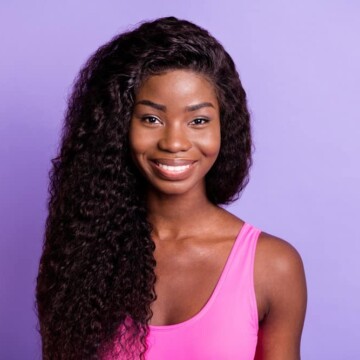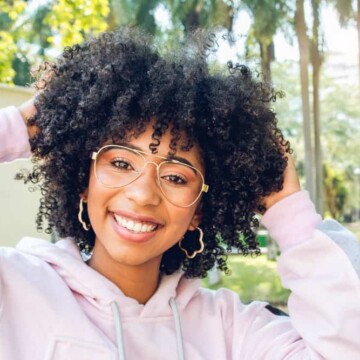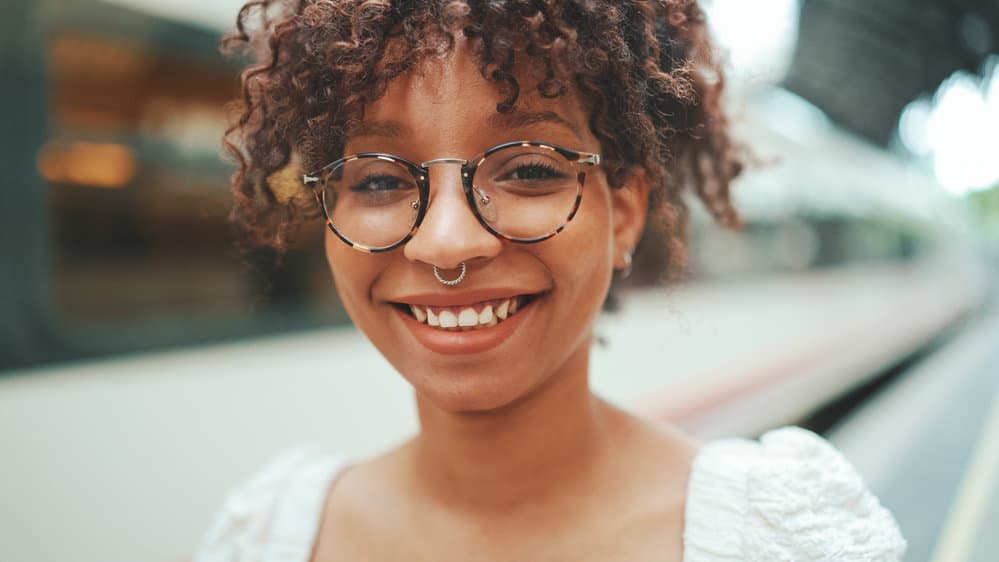
If you’re looking at your baby pictures or thinking back to your childhood and wondering why your hair used to be curly, you are not the only one. Many people experience hair texture changes as they age for one reason or another.
If you want to know why your hair texture has changed over time, you’re in the right place. This article will examine why your curls vanished.
Why Was My Hair Curly When I Was Younger?
A variety of factors can affect our hair texture - some in our control, some out of our control. Genetics, hormones, hair care habits, and more all have the potential to change the hair that we were born with. In this section, we will share 8 reasons why your hair is no longer curly.
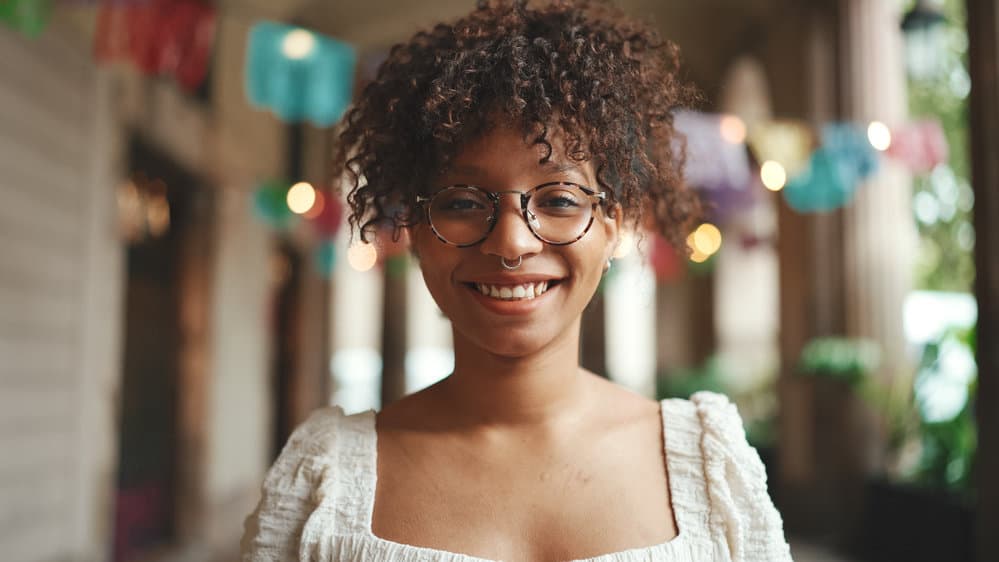
1. Blame It on Your Hormones
Often, hormones are to blame when your hair seems to magically stretch out over time. Why? Hormones have a direct effect on hair follicle function.
If you are going through a hormonal change, like puberty, pregnancy, or menopause, your follicular muscles may change, and this can affect how your hair grows from your scalp.
If you notice that your hair changes during a hormonal shift, hormones are probably the culprit behind your hair texture change.
The good news is that if your hair texture changed because of hormones, it may return to normal when your hormones return to their previous levels. But this will not be the case for everyone.
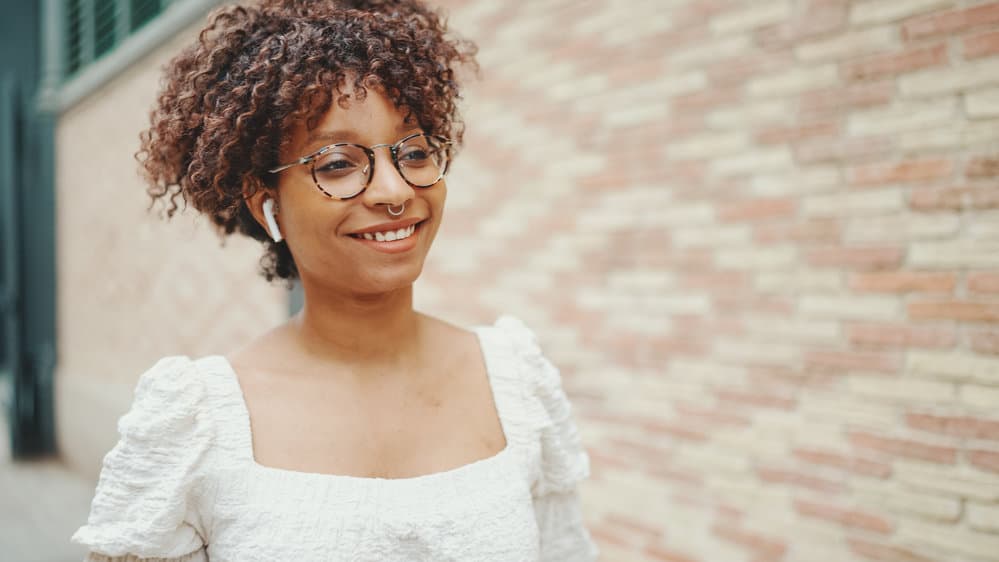
2. It’s in Your Genes
Genetics is probably one of the most complicated subjects in medicine, so we won’t go there. We will suffice it to say that genetics plays a huge role in how your hair looks, feels, and behaves. Some of the genes that express your hair characteristics change over time.
When you were a child, you grew curly hair because of your genes.
A little-known fact about genetics is that genes can switch on and off based on various stimuli. If the genes responsible for your curly hair shut off, your hair will not grow in curly anymore.
Think about your parents. If one or both of them had curls as a child and developed straight hair as an adult, genetics may be why your curls have straightened out or disappeared entirely.
In this case, you’ll have to make peace with your hair and use styling to bring back the curls of your youth.
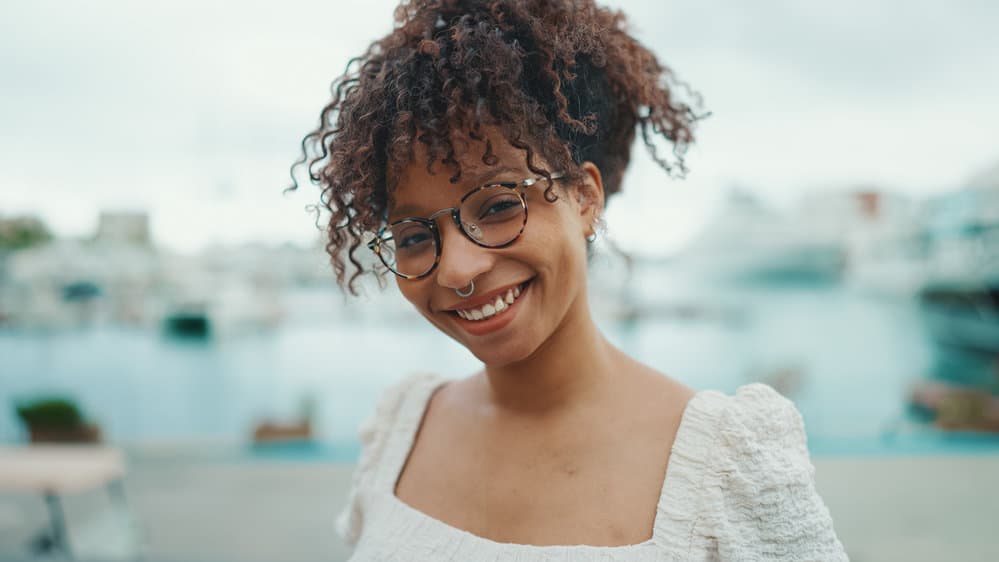
3. You’re a Hair Dye Enthusiast
Hair dyeing is all the rage nowadays. We’re all trying out new and fun hair colors to express our personalities and fashion sense. But when hair dye is overused or misused, it can seriously damage your hair.
The reason why hair dye can be so destructive to the hair is that it forcibly breaks through your hair's cuticle to remove your natural hair color and deposit your chosen color deep within your strands.
It sounds invasive because it is. Most people’s hair can handle a hair dye session or two, but frequent hair coloring can quickly alter the integrity of your hair, resulting in the loosening of your curl pattern.
If you notice that your hair began to change when you discovered hair dye, it could be to blame for your curl loss.
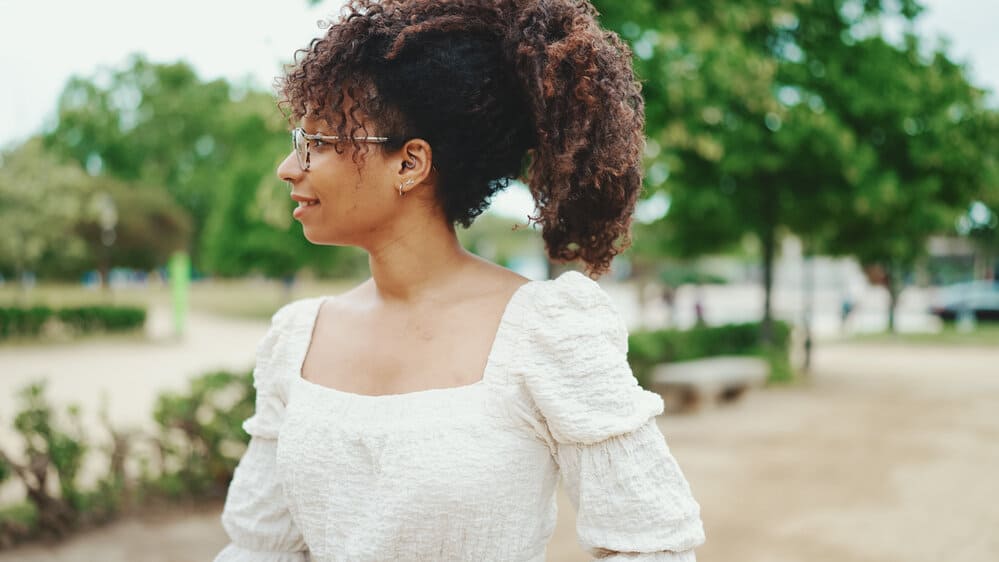
4. You’ve Been Bleaching Your Hair
Hair bleach has earned a notorious reputation for ruining entire heads of hair. You may have seen hair bleach fails on the internet – there are tons of them. Just because your hair hasn’t fallen out doesn’t mean that you don’t have bleach damage.
A lesser-known result of bleaching is hair texture changes, often in the form of loosening curls.
It takes just one bleach session to loosen your curl pattern, so if you've been bleaching your hair for years, this could be why your hair is no longer as curly as it was when you were younger.
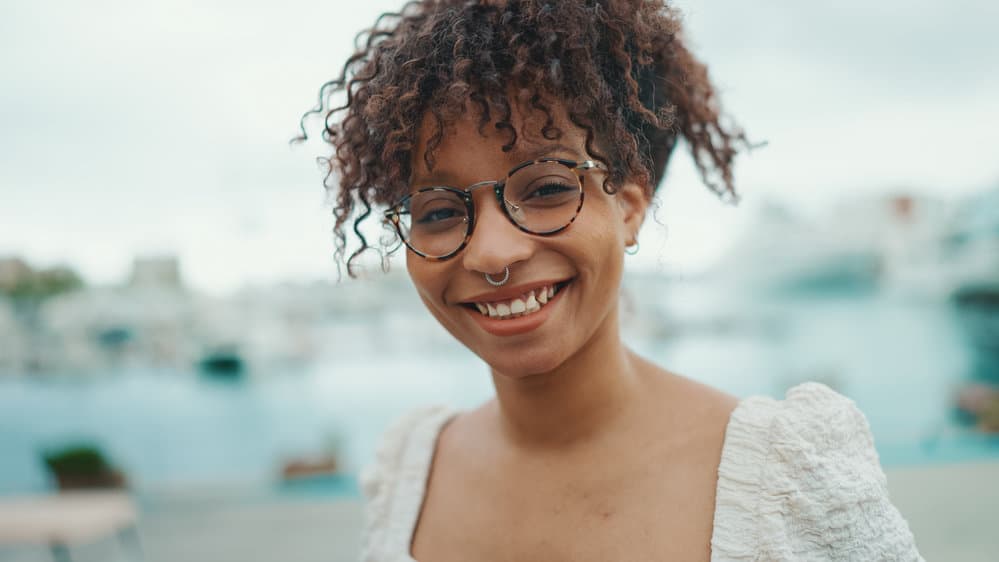
5. Check Your Medicine Cabinet
This one is not as common as other reasons on our list, but some medications can alter your hair texture. If your hair was curly for years and suddenly changed when you started a new medicine, check with your doctor about it.
It could be that the medication is to blame for your hair texture change. You have nothing to worry about if you don’t mind your new hair texture.
But if you want your old curls back, your doctor may be able to prescribe a different medication to treat whatever ailment you suffer from.
6. Your Hair Is Thirsty
Bone dry strands mask curls. For your ringlets, coils, and kinks to show their true form, they need to be adequately hydrated. And as we age, our hair needs more and more TLC.
If you haven’t been giving your hair the moisture and nourishment it needs, the neglect may manifest in the form of loosened curls. In addition to the change in texture, you may notice hair dryness and an increase in breakage.
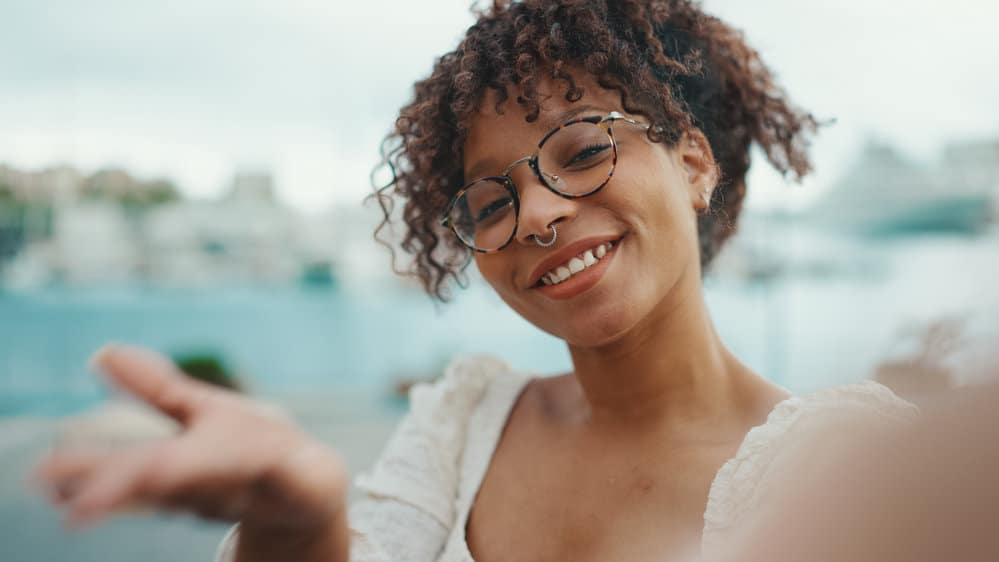
7. You’ve Gone Wild with Heat Styling
Those heat tools are at it again. Heat styling is yet another driver of hair texture loss. People often experiment with heat tools during adolescence or adulthood.
And when they do, it takes time to learn how to use these tools correctly. Improper heat tool usage will fry your hair from the inside and result in noticeable texture loss.
If your hair was curly until you started experimenting with heat styling, heat styling is likely the reason behind your curl loss.
8. Your Hair Hygiene Is Lacking
Are you heavy-handed with products? Build-up stemming from inadequate washing over time can result in weighed down, loose curls.
Most people will not experience this, but in extreme cases, when you use heavy products and fail to wash your hair properly, the ingredients from those products will settle and harden on your strands, inhibiting your natural curl pattern from showing.
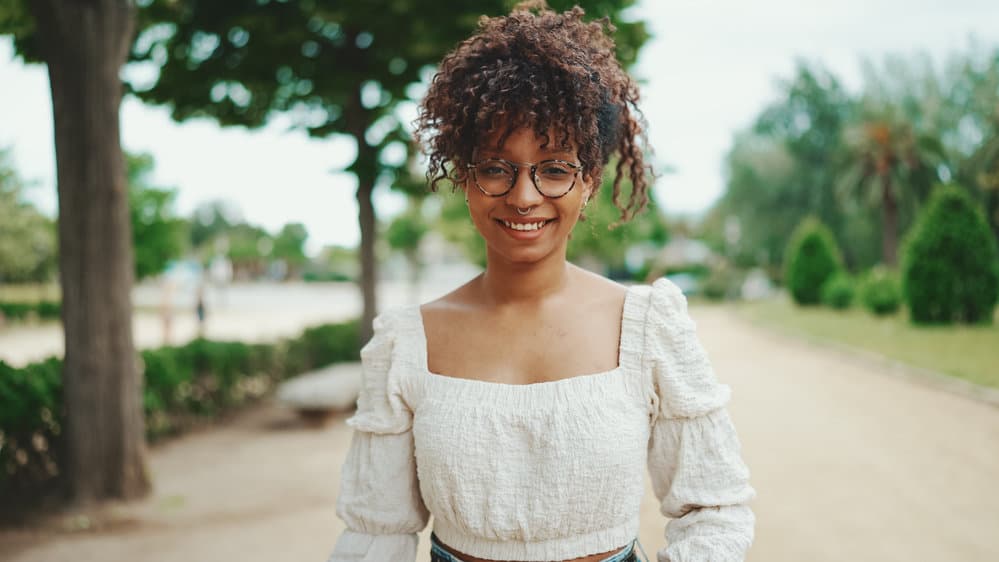
How to Get Your Curls Back
In the case of hormones and genetics, you may not be able to get your curls back. Outside of manual styling, there’s nothing you can do about natural hair texture changes resulting from hormones and genes.
But if your texture change is due to one of the other culprits we mentioned earlier, here’s what you can do:
- If you use hair dye, bleach, or heat styling tools, put them all down immediately. Once you stop the abuse from these products, your newly grown hair will take on the shape it’s supposed to. When you do, you may notice that your curls slowly come back as new hair grows in.
- Prioritize moisture in your hair care regimen. After washing your hair, always follow up with a moisturizing conditioner to restore the moisture that the shampoo washed away. If your hair is chronically dry, deep condition it once or twice a week to revitalize damaged curls. And for a quick dose of moisture in the morning, spritz your hair with a leave-in conditioner.
- Add some curls to your mane with manual styling. Given the destructive nature of heat styling tools, we advise against using them whenever possible. Instead, use heatless styling methods like Bantu knot outs, twist outs, and braid outs. You’ll get texture without any of the damaging effects of heat.
- Hair Curls Inwards at the Bottom
- How to Make Straight Hair Wavy
- My Hair Is Straight on Top and Curly on Bottom
As you can see, several things could have caused your curls to vanish. But, in most cases, you can bring them back with just a few tweaks to your hair care routine. We hope that this article was helpful to you and wish you the best with your hair.

